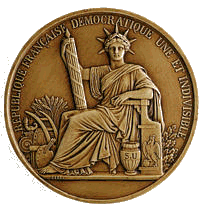| School | Troops | Resources |
The French Historical School

The establishment of chairs of economics in law faculties throughout France in
the 1870s broke the monopoly held by the French Liberal
School on the French establishment. Many of the new appointees were of
a quite different stripe. Inspired by German Historicism (and modestly
inspired by the rising discipline of sociology)
this new breed of
French academic economists pursued the historical and empirical method in their economics.
They were also quite politically involved, some of them leaning heavily towards
socialist, syndicalist, cooperative and
corporatist movements. Their main organ was the Revue économique internationale.
However, one could argue that they were never really a self-conscious "school" as such and even its "historicist" credentials could be disputed. Under the leadership of the eminent Émile Levasseur, the French Historical School did much to smother the growth of Neoclassical economics in France. But a few, notably Charles Gide, Adolphe Landry and, more unabashedly, Etienne Antonelli, were extremely receptive and may even be regarded as proponents. Its business cycle strand, notably the work of Albert Aftalion, was highly theoretical and influential on subsequent cycle theory.
|
Early French Historicists
The Historical School
French Business Cycle Theory
|
HET
|
|
Resources French Historicism
|
All rights reserved, Gonçalo L. Fonseca
